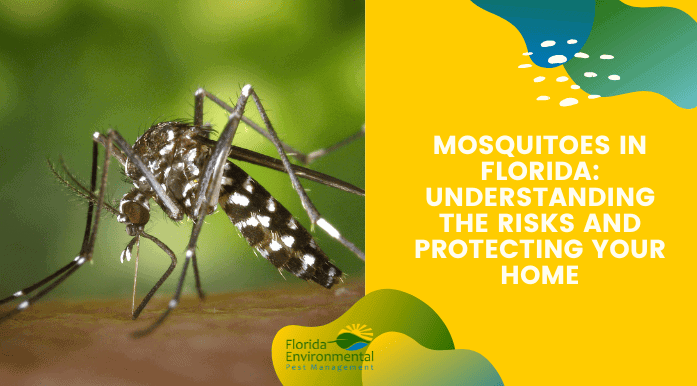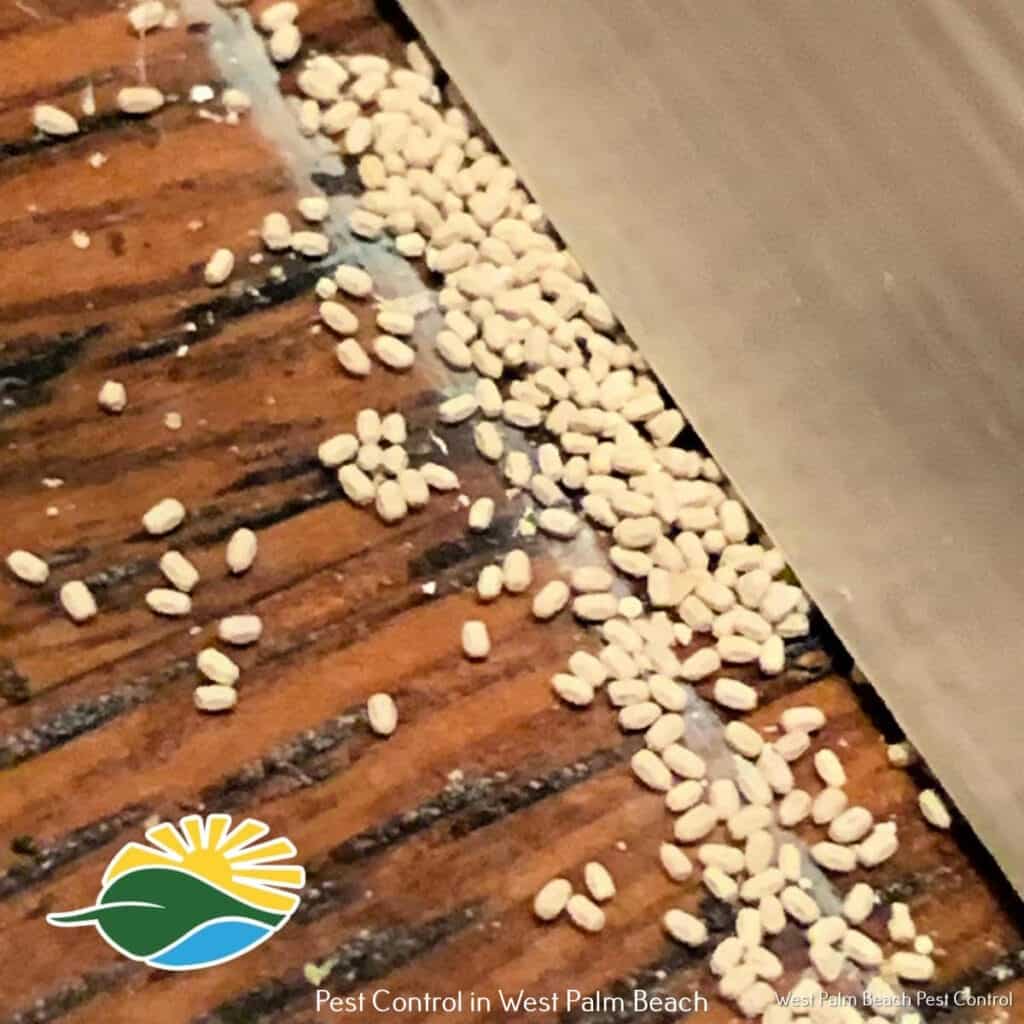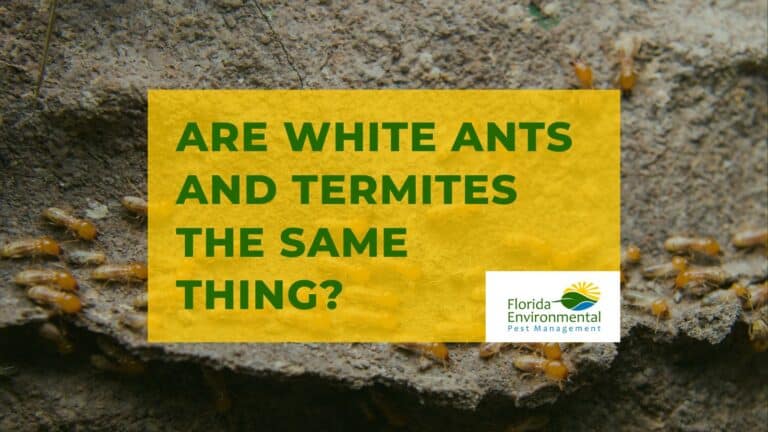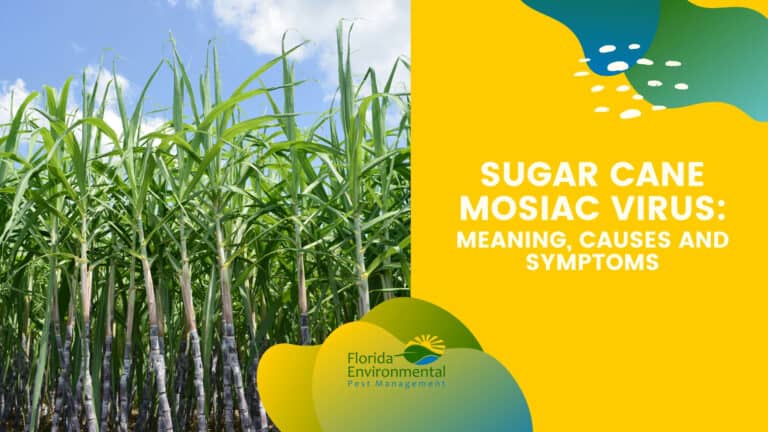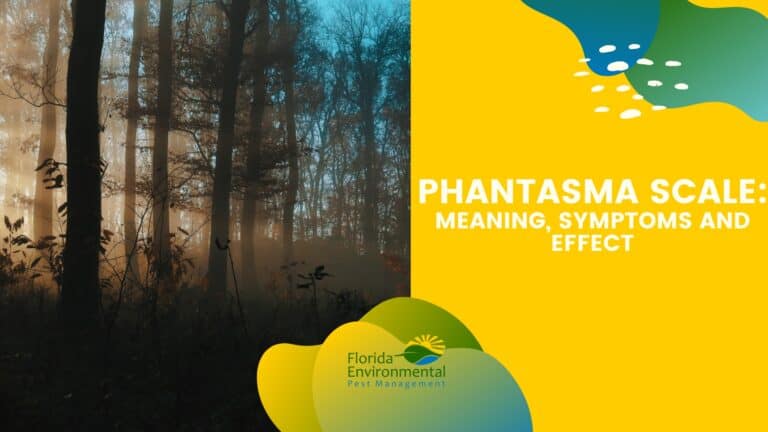Florida, with its picturesque beaches, vibrant wildlife, and warm tropical climate, is a haven for residents and tourists alike. However, this beautiful state also plays host to a less welcome guest: mosquitoes. These tiny, buzzing pests are more than just a nuisance; they pose significant health risks and can disrupt the tranquility of our homes and outdoor spaces.
Understanding the risks associated with mosquitoes and the preventive measures one can take is crucial for every Floridian. This article aims to shed light on the mosquito landscape in Florida, the dangers they bring, and effective strategies to protect your home and loved ones from their menace.
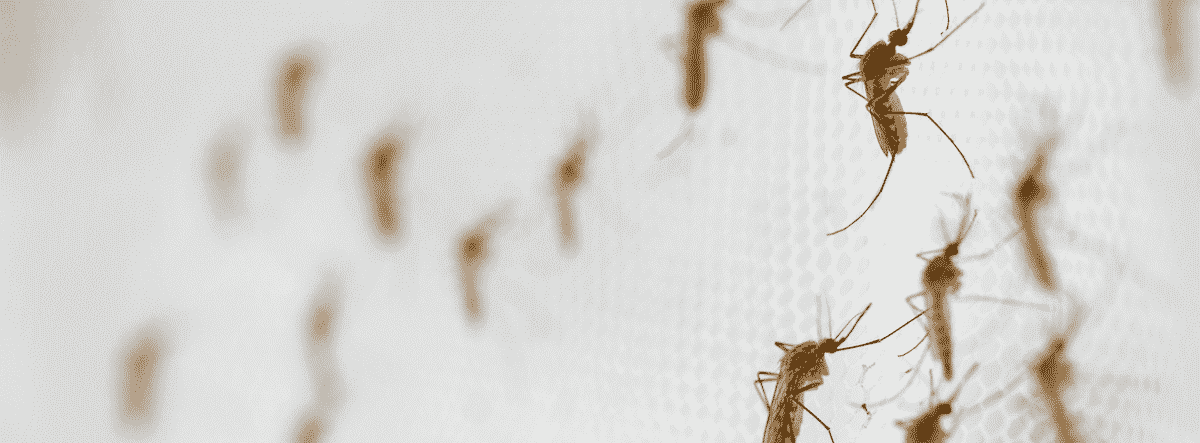
The Mosquito Landscape in Florida
Florida’s diverse ecosystem, ranging from its marshy Everglades to its serene beaches, provides an ideal breeding ground for various mosquito species. With over 80 different types of mosquitoes recorded in the state, it’s essential to recognize some of the most common and problematic ones.
- Aedes aegypti (Yellow Fever Mosquito): Originally from Africa, this species is now found throughout Florida. Recognizable by its distinctive white-striped legs, the Aedes aegypti is a primary vector for diseases like Zika, Dengue, and Chikungunya.
- Aedes albopictus (Asian Tiger Mosquito): Named for its black and white striped appearance, this mosquito is an aggressive daytime biter. It’s a significant concern due to its ability to transmit various diseases.
- Culex nigripalpus: This native species is widespread in Florida and is known to transmit the West Nile virus and St. Louis encephalitis.
- Anopheles quadrimaculatus: Commonly found in freshwater habitats, this mosquito is a vector for malaria, although the disease is now rare in Florida.
Mosquitoes thrive during Florida’s warm months, typically from May to October, with their populations peaking during the rainy season. They primarily breed in stagnant water, which can be found in natural habitats like swamps and marshes, as well as man-made containers like bird baths, old tires, and clogged gutters.
Understanding the types of mosquitoes and their breeding habits is the first step in formulating an effective strategy to combat them.
Risks Associated with Mosquitoes
Mosquitoes are not just bothersome pests; they are also carriers of various diseases that can have severe implications for humans and animals alike. Their ability to transmit these diseases makes them one of the deadliest animals on the planet.
- Health Risks
- Zika Virus: First identified in Uganda, the Zika virus has since spread to various parts of the world, including Florida. Transmitted primarily by the Aedes aegypti mosquito, Zika can cause fever, rash, joint pain, and conjunctivitis. It’s particularly concerning for pregnant women, as it can lead to birth defects.
- West Nile Virus: This virus is primarily spread by mosquitoes, especially the Culex species. While most people infected with West Nile do not show symptoms, some can develop severe and sometimes fatal neurological illnesses.
- Dengue: Often referred to as “breakbone fever” due to the severe muscle and joint pain it causes, Dengue is a viral infection transmitted by Aedes mosquitoes. Symptoms include high fever, severe headache, pain behind the eyes, and rash.
- Chikungunya: This viral disease is transmitted to humans by infected mosquitoes, particularly Aedes aegypti and Aedes albopictus. Symptoms include fever and joint pain, and while rarely fatal, the pain can be debilitating and last for several weeks.
- Allergic Reactions: Some individuals may experience allergic reactions to mosquito bites, leading to larger areas of swelling, blistering, and even anaphylaxis in rare cases.
- Environmental Risks
- Impact on Local Ecosystems: Mosquitoes play a role in local ecosystems, serving as food for various animals like birds and bats. However, an overpopulation can disrupt this balance, leading to other environmental challenges.
- Role in the Food Chain: While they are prey for many species, mosquitoes also prey on other insects, helping control their populations. An imbalance in mosquito populations can thus have a cascading effect on the food chain.
Understanding these risks underscores the importance of proactive mosquito control measures, both at an individual and community level.
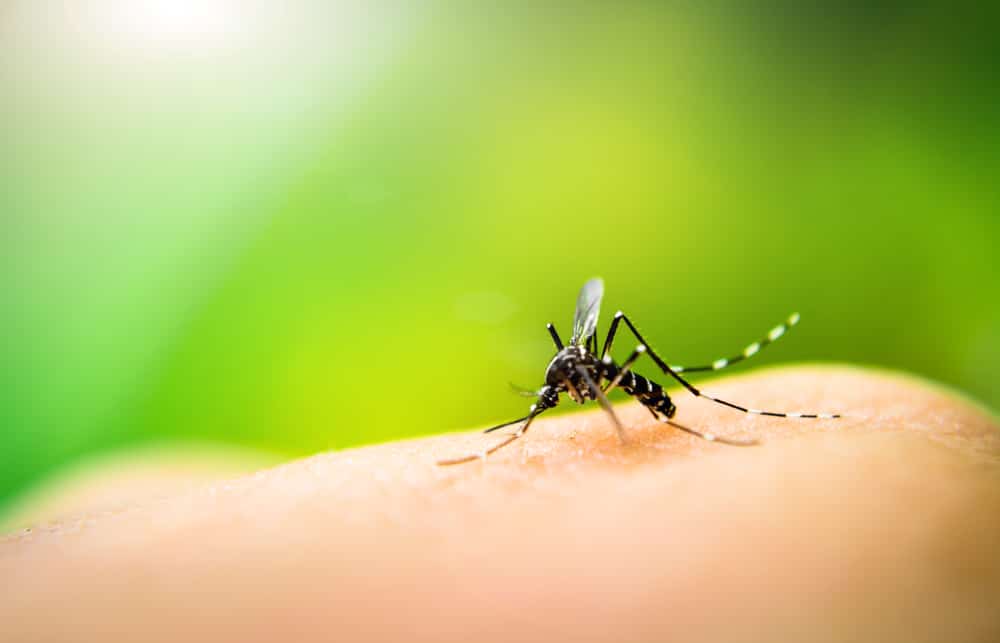
Why Florida is a Mosquito Haven
Florida’s allure, with its sun-kissed beaches, lush wetlands, and balmy weather, is undeniable. However, these very attributes that make the Sunshine State a paradise also make it a breeding ground for mosquitoes.
- Warm and Humid Climate: Mosquitoes thrive in warm, humid conditions. Florida’s subtropical climate, with its hot summers and mild winters, offers an ideal environment for mosquitoes to breed and multiply throughout most of the year.
- Abundance of Stagnant Water Bodies: Mosquitoes lay their eggs in stagnant or slow-moving water. Florida’s landscape is dotted with swamps, marshes, ponds, and lakes, providing ample breeding sites. After heavy rains, even small puddles or overlooked containers can become mosquito nurseries.
- Urban Development: As Florida continues to grow and urbanize, many natural habitats get disrupted. This urban sprawl often leads to water stagnation in construction sites, abandoned properties, and poorly maintained areas, all of which are potential mosquito breeding grounds.
- Travel and Tourism: Florida’s popularity as a tourist destination means a constant influx of travelers. This movement, both domestic and international, can introduce new mosquito species or diseases to the state.
- Natural Vegetation: Thick vegetation and foliage provide mosquitoes with shelter from the sun and predators. Florida’s dense mangroves, forests, and wetlands offer such sanctuaries, allowing them to rest and reproduce in peace.
While these factors make Florida a hotspot for mosquitoes, understanding them is the first step in devising effective strategies to manage and reduce their populations.
Mosquito Misting Systems
In the battle against mosquitoes, homeowners and businesses are constantly seeking effective solutions. One such innovative approach that has gained popularity in Florida is the Mosquito Misting System.
- What are Mosquito Misting Systems?
- Mosquito Misting Systems are automated systems designed to spray a fine mist of insecticide at predetermined intervals. Typically installed around the perimeter of a property, these systems target mosquitoes and other biting insects, reducing their populations and making outdoor spaces more enjoyable.Benefits
- Effective Reduction: Regular misting can significantly decrease mosquito populations in the treated area, providing relief from these pesky invaders.
- Customizable: Users can set the frequency and duration of the misting based on their needs, ensuring optimal coverage.
- Convenience: Once installed, the system operates automatically, eliminating the need for manual spraying or repellent application.
- Safe for Beneficial Insects: When used correctly, the misting system’s insecticides target mosquitoes without harming beneficial insects like bees and butterflies.Considerations
- Choosing the Right Insecticide: It’s essential to select an insecticide that’s both effective against mosquitoes and safe for the environment. Many homeowners opt for natural or organic solutions.
- Environmental Impact: While misting systems are designed to target mosquitoes, it’s crucial to ensure that the insecticide doesn’t harm non-target organisms or contaminate water sources.
- Safety for Pets and Children: Ensure the chosen insecticide is safe for pets and children, and always follow the manufacturer’s guidelines.Maintenance and Upkeep
- Regular Refills: The insecticide reservoir needs to be checked and refilled periodically to ensure continuous protection.
- System Checks: Regularly inspect the nozzles, tubing, and other components for any signs of damage or clogging. This ensures the system operates efficiently and covers the intended areas.
- Professional Servicing: Consider having the system serviced annually by professionals to ensure its longevity and effectiveness.
Incorporating a Mosquito Misting System into your mosquito control strategy can offer a reliable and efficient way to reclaim your outdoor spaces from these unwelcome guests.
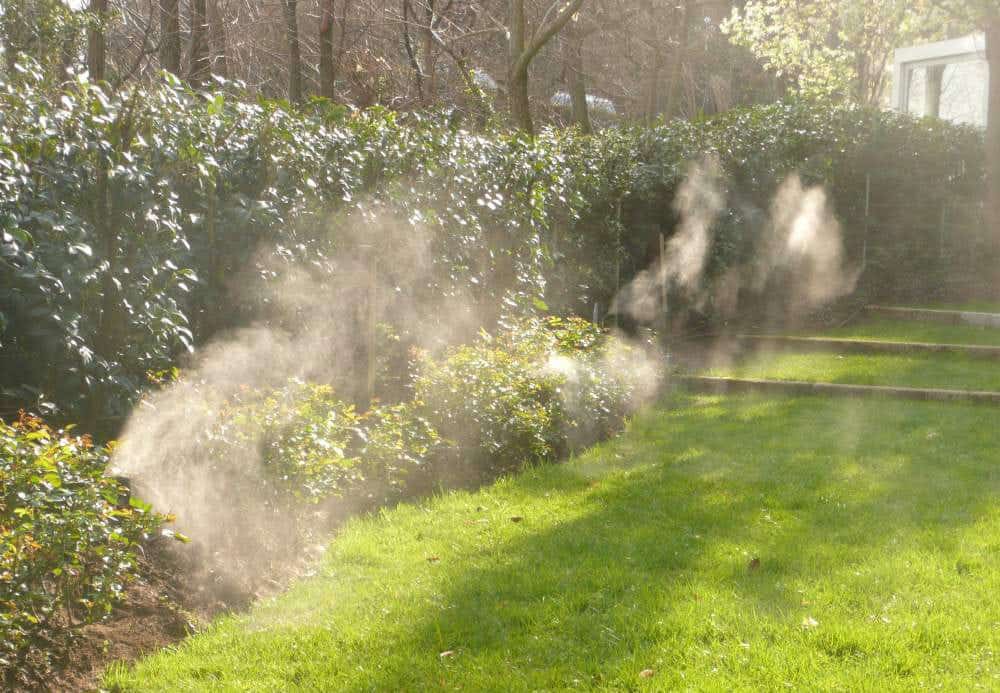
Protecting Your Home from Mosquitoes
While Florida’s environment is conducive to mosquito breeding, homeowners can take several measures to safeguard their homes and reduce the risk of mosquito-borne diseases.
Preventitive measures
- Stagnant Water: Regularly inspect your property for any stagnant water sources. Empty and clean birdbaths, flowerpot saucers, and pet water dishes at least once a week. Ensure gutters are unclogged and draining properly.
- Swimming Pools and Ponds: Properly maintain swimming pools, ensuring they are chlorinated and covered when not in use. For ponds, consider introducing natural predators like fish that feed on mosquito larvae.
- Screens and Nets: Install or repair screens on windows and doors to prevent mosquitoes from entering your home. If you enjoy spending time outdoors, consider using mosquito nets or screened-in areas for protection.
Natural Repellents
- Plants: Certain plants act as natural mosquito repellents. Consider planting citronella, lavender, marigold, or lemon balm in your garden or patio area.
- Essential Oils: Oils like eucalyptus, lemon, and tea tree can act as natural repellents. They can be applied directly to the skin (after dilution) or used in diffusers.
Chemical Solutions
- Repellents: When outdoors, especially during peak mosquito activity times, use mosquito repellents containing DEET, picaridin, or oil of lemon eucalyptus. Always follow the product’s instructions and reapply as directed.
- Professional Pest Control: For severe mosquito infestations, consider hiring professional pest control services. They can provide comprehensive treatments, including larvicides and adulticides, to address the mosquito problem at every stage.
By implementing these measures and staying vigilant, homeowners can significantly reduce mosquito populations around their homes, ensuring a safer and more comfortable living environment.
Florida Environmental’s Role in Mosquito Control
In the ongoing battle against mosquitoes, Florida Environmental stands as a beacon of hope for homeowners and businesses alike. With a deep understanding of Florida’s unique mosquito landscape, the company offers tailored solutions that address the root of the problem.
- Expertise and Experience: With years of experience in the field, Florida Environmental’s team of experts is well-equipped to handle even the most challenging mosquito infestations. Their knowledge of local mosquito species, breeding habits, and effective control measures ensures that clients receive the best possible service.
- Comprehensive Services: Beyond just treating adult mosquitoes, Florida Environmental adopts a holistic approach. This includes identifying and treating breeding sites, offering preventive advice, and providing regular maintenance checks to ensure long-term protection.
- Eco-friendly Solutions: Recognizing the importance of environmental sustainability, Florida Environmental prioritizes eco-friendly treatments. This not only ensures the safety of the local ecosystem but also offers peace of mind to homeowners concerned about the impact of chemical treatments.
- Education and Awareness: Beyond their services, Florida Environmental is committed to raising awareness about the risks associated with mosquitoes and the importance of proactive control measures. Through workshops, informational materials, and community engagement, they empower Floridians to take charge of their mosquito problems.
- Testimonials and Success Stories: Countless homeowners and businesses have benefited from Florida Environmental’s services. From reclaiming outdoor spaces to ensuring a mosquito-free home, the testimonials speak volumes about the company’s efficacy and commitment.
Choosing Florida Environmental means opting for a safer, more comfortable living environment, free from the menace of mosquitoes. Their dedication to excellence and customer satisfaction has cemented their reputation as one of Florida’s leading pest control companies.

Taking Back Control: A United Front Against Mosquitoes
Mosquitoes, while small in size, pose significant challenges to the residents of Florida. Their ability to transmit diseases, coupled with the state’s favorable breeding conditions, makes them a persistent threat. However, with knowledge, proactive measures, and the right partners in mosquito control, Floridians can effectively combat these pesky invaders.
Understanding the risks associated with mosquitoes and the various preventive and control measures available is the first step towards a safer, mosquito-free environment. By staying informed and taking timely action, homeowners can protect their families, pets, and properties from the adverse effects of these insects.
Florida Environmental’s commitment to providing top-notch mosquito control services further reinforces the idea that, with the right approach and resources, we can reclaim our outdoor spaces and enjoy the beauty of Florida without the constant annoyance of mosquitoes.
In the battle against mosquitoes, knowledge is power, and action is the key. Let’s work together to make Florida a safer place for all.

